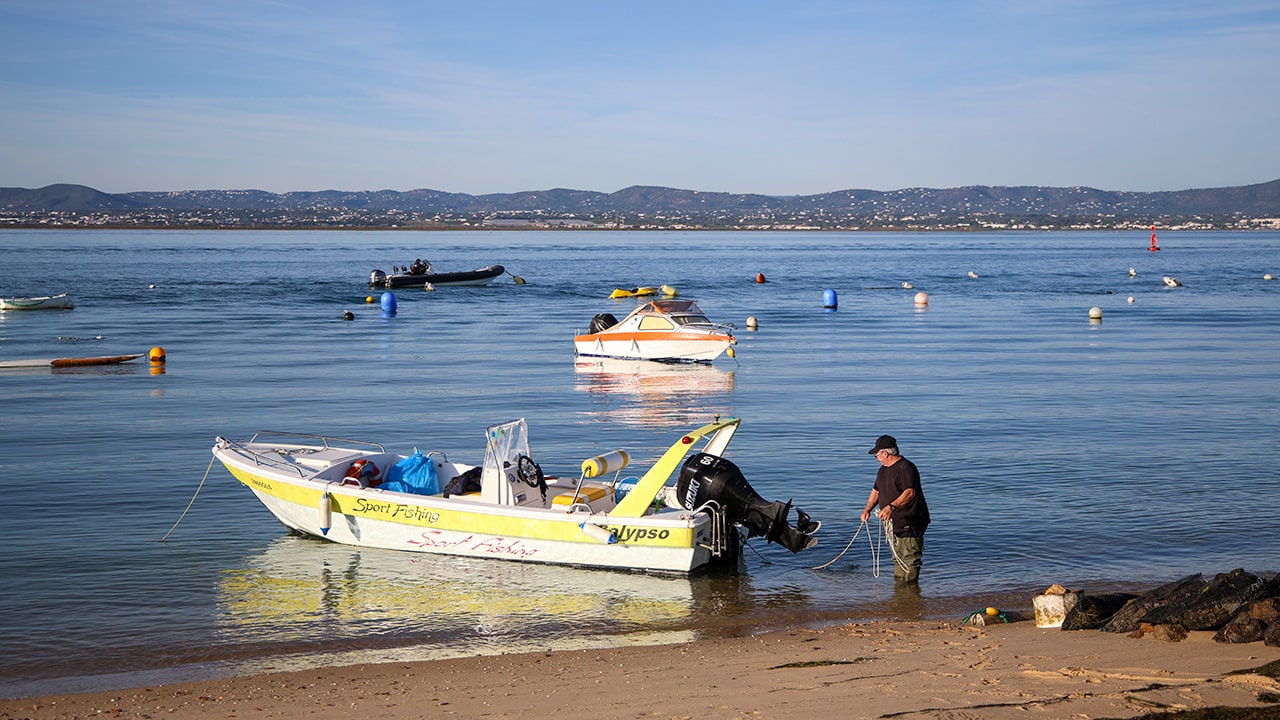Government to review jurisdictional model for communities on Culatra island
The door has finally opened on the fair treatment that island communities in Ria Formosa have been fighting for for decades.
Environment minister Maria da Graça Carvalho visited Culatra island yesterday, and said that the government is committed to reviewing the confusion of different statutes in order to guarantee the safety of people and homes and preserve the environment.
“We want to standardise the management model of the various communities”, she explained, referring to the “ridiculous model” in place where some properties are illegal, because they are in Public Maritime Domain, and others are legal, in the jurisdiction of Faro municipality.
“This has very complicated consequences for people’s lives, because even if Faro Câmara wants to help with basic sanitation, electricity and water, it can’t do so – and so there are urgent matters to resolve here”.
SOS Ria Formosa, the action group that has fought previous government edicts and demolition orders, says it cannot remember a speech from a person in charge (…) that was as straightforward and people-oriented”.

“It has been 10 years, incredible as it may seem, since a government tried to simply ‘wipe’ these communities off the map”, the group recalls, stressing the invaluable resistance of residents’ associations, “the people of these communities” and Faro and Olhão councils, who both made “huge” efforts to stave off the cull.
Yes, there were casualties (homes that were levelled by JCBs in the name of the environment), but Minister Carvalho stressed these demolitions removed the perceived dangers from encroaching sea levels as the homes that remain “are further away from the water line”.
Her visit yesterday was “to listen to people”, she told reporters, and tell them that the government (through the Portuguese Environment Agency), together with Faro municipality, will study the situation, and see how it can be put on an equitable footing.
“We need to look at all of this with a lot of common sense”, she said – a sentence that hinted at the enormous lack of it that has tainted the past.

There is no timeline, however. The intention is simply to carry out an analysis “very soon” to present a “solution” that will allow houses not at risk to finally all become recognised.
The sweeping ‘renaturalisation’ of the islands, previously planned by Polis Litoral da Ria Formosa (the plan that required large numbers of long-standing homes to be flattened) is “not going ahead”, she assured: another sentence worth its weight in gold.
The government is adamant that there can be no new construction or population growth on the island, but it is committed to “communities that already exist”, and wants to ensure their living conditions are improved.
In a statement released this morning, SOS Ria Formosa stressed that Maria da Graça Carvalho’s statements have left islanders “extremely hopeful that the authorities have indeed realised once and for all the economic validity, cultural importance and attachment of the people to this island.
“It has been years and years of abandonment, and it has always been the islanders themselves who have taken care of these places, building support and organisational infrastructures not only for those who live here but also for those who want to visit these places, and there are thousands of them today.
“It is time to recognise, compensate and respect people once and for all. Create rules, create supervision, create conditions for the ridiculous situations recognised by the minister herself.
“It is absolutely essential to have these guidelines well defined, to call on communities to participate and also to hold them responsible for complying with the rules defined. They are the first line of defence for the environment, they are the ones who suffer most from the lack of support and conditions, so they are the main stakeholders in respecting and creating rules that defend this wonderful space that is the Ria Formosa.
“It is time for us all to work together to make this area more beautiful, more respected, more solid, and one that we can all be proud to represent and defend against any and all threats.
“Let’s take care of these communities, let’s once and for all create the conditions to defend the environment, counting on them to be at the forefront of this fight that belongs to everyone.
“No more destruction, let’s build solid solutions that serve the communities and those who visit them, so that we can all be proud and say, this is worth it.
“We are not enemies of the environment”, insists the group – recalling some of the accusations levelled against their communities in the past. “Quite the opposite, help us to protect the dunes, help us to monitor them, help us and we will repay you with dedication and a sense of responsibility in the defence of these islands”.
And that is the truth of this struggle: Ria Formosa’s islanders have always been focused on defending their communities; their part of an island that their forebears arrived on over 200 years ago in order to work for the Portuguese government of the time.




















